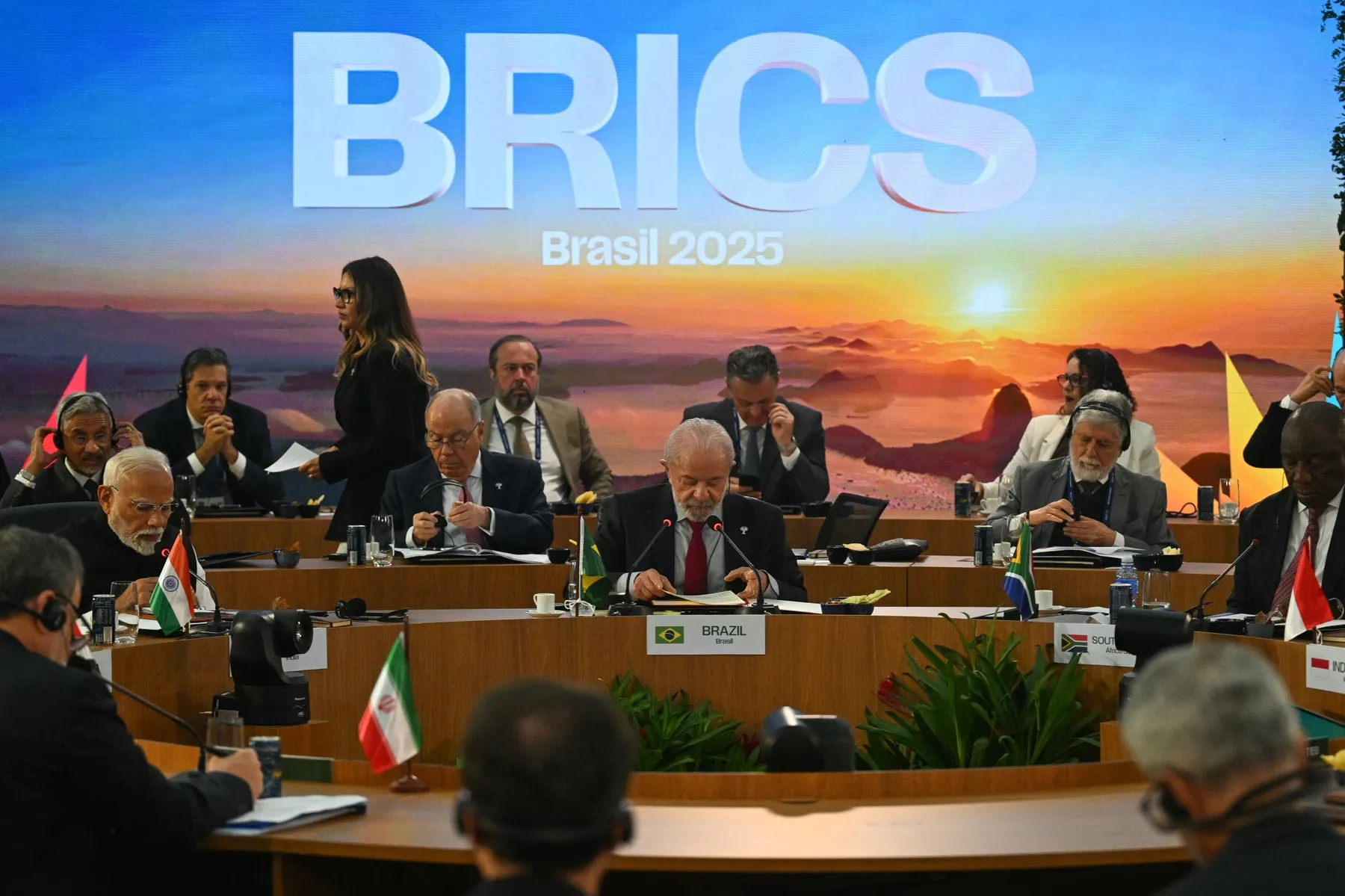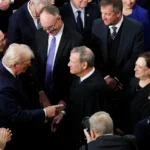The BRICS group has entered a wait-and-see mode after sharp statements by U.S. President Donald Trump, who threatened to impose new tariffs on countries he accused of pursuing “anti-American policies.” On Monday morning, under sudden rain in Rio de Janeiro, officials from the ten emerging economies that make up the group were reluctant to comment on Washington’s unexpected escalation.
According to Bloomberg, participants in the summit hosted by Brazilian President Luiz Inácio Lula da Silva chose not to openly confront Trump. Lula himself refrained from making statements, promising to speak only after the summit. His chief foreign policy adviser, Celso Amorim, responded with restraint:
“These threats only underscore the need for an organization like BRICS, which has the capacity to react, to convene, and to reach conclusions,” he said in an interview. “We didn’t threaten the U.S. with anything.”
Still, the tension was palpable. Several country representatives acknowledged in private that Trump’s behavior is impossible to predict. His social media statement could be a genuine threat — or just rhetorical bluster. The only viable option, they said, was to wait. One official noted: “Trump might just change his mind or forget he ever made the statement.”
Concerns intensified when South Africa’s president abruptly canceled a planned state visit to Brasília, citing a domestic crisis. Many interpreted this move as a sign that no one wants to further provoke Washington at such a sensitive moment in trade discussions.
Joint Statement and Diplomatic Caution
Though BRICS leaders — representing nearly half the world’s population and about 39% of global GDP — signed a final declaration, the United States was not mentioned by name, despite sharp criticism of U.S. policies. The document expressed “serious concerns” over protectionist measures, condemned airstrikes on Iran (a BRICS member), and criticized rising global defense spending. Yet, according to Bloomberg, the language avoided explicitly naming the U.S. as a source of these issues.
This cautious approach reflected internal divisions within the bloc. Some member states — such as India and Saudi Arabia — maintain relatively close ties with Washington, while others seek to keep their distance. Many BRICS nations are simultaneously negotiating bilateral deals with the White House, aiming to avoid falling under American sanctions.
In response to the group’s collective stance, Trump threatened to impose an additional 10% tariff on any country “aligning with the anti-American policies of BRICS.” His statement triggered an immediate market reaction: currencies and stock indices across developing nations tumbled early Monday, with South Africa’s rand leading the losses.
Dollar, Tariffs, and Delayed Reforms
This year’s summit, which also welcomed a Saudi representative and delegations from ten “partner countries,” including Malaysia, Nigeria, and Vietnam, failed to produce breakthroughs in key initiatives long discussed by the bloc. The proposed cross-border payment system, under negotiation for over a decade, saw no meaningful progress.
Similarly, the idea of abandoning the U.S. dollar in bilateral trade — which previously drew Trump’s ire and threats of 100% tariffs — was not even on the agenda this time, according to several officials.
As Bloomberg noted, this behavior is not just a show of caution but also a symptom of deeper uncertainty within BRICS. The group positions itself as an alternative to the Western-led global order and advocates for multilateral governance, but in practice, consensus among its members on key issues remains elusive — especially when it comes to managing relations with the United States.
Silence as a Strategy
BRICS’s silent and measured response to Trump’s ultimatum can be interpreted as a calculated form of diplomacy in a time of growing trade tensions. Rather than engaging in open confrontation, the bloc chose to voice its concerns indirectly, avoiding naming names and leaving space for maneuver.
“We didn’t threaten anyone. We are responding,” Celso Amorim emphasized. But how long can this approach hold if the U.S. shifts from threats to action?
For now, BRICS has opted for a cautious strategy — but in the face of the unpredictable trade policy of the Trump administration and global economic risks, even such caution may prove to be a risky gamble.
This article was prepared based on materials published by Bloomberg. The author does not claim authorship of the original text but presents their interpretation of the content for informational purposes.
The original article can be found at the following link: Bloomberg.
All rights to the original text belong to Bloomberg.


















